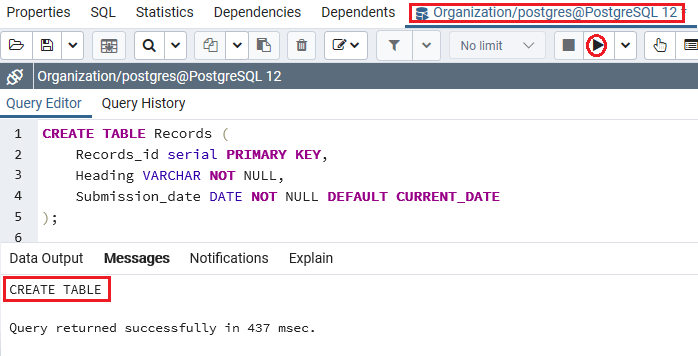

Pass the Unix timestamp as an argument to the TO_TIMESTAMP() function, as a result, the TO_TIMESTAMP() function will convert the given Unix timestamp to an equivalent date-time value. In PostgreSQL, the TO_TIMESTAMP() function is used to convert a Unix or Posix Timestamp to a DateTime value. The output proves that the TO_TIMESTAMP() function converted the Unix timestamp to an equivalent time using the scope resolution operator. Similarly, a Unix Timestamp can be converted into an equivalent time by specifying the TIME data type with the Scope Resolution “::” Operator: SELECT TO_TIMESTAMP(1540295216.157677) :: TIME The TO_TIMESTAMP() function converted the Unix timestamp to an equivalent date using the scope resolution operator.Įxample 3: Converting UNIX Timestamp to Time For this purpose, the Scope Resolution “::” Operator must be used with the DATE data type, as shown in the following snippet: SELECT TO_TIMESTAMP(1540295216.157677) :: DATE Suppose the user wants to convert the UNIX timestamp to the equivalent date only. The TO_TIMESTAMP() function converts the input Unix timestamp to an equivalent date, time, and timezone.Įxample 2: Converting UNIX Timestamp to Date The TO_TIMESTAMP() function will convert the given Unix timestamp to the equivalent DateTime value: SELECT TO_TIMESTAMP(1540295216.157677) In the following snippet, a specific UNIX timestamp is passed to the TO_TIMESTAMP() function. Let’s comprehend this concept via practical examples.Įxample 1: Converting UNIX Timestamp to DateTime To achieve this, pass the Unix timestamp as an argument to the TO_TIMESTAMP() function, as a result, TO_TIMESTAMP will convert it into an equivalent timestamp.Ĭonsider the below-given snippet to understand the basic syntax of the TO_TIMESTAMP() function: TO_TIMESTAMP(unix_timestamp) In Postgres, the TO_TIMESTAMP() function is used to convert a Unix or Posix Timestamp to a DateTime value. This post illustrates a practical guide on converting the Unix TIMESTAMP to a date or Time value using the built-in TO_TIMESTAMP() function.Ĭonverting a Unix Timestamp to a DateTime in Postgres To tackle such a situation, the TO_TIMESTAMP() function is used in Postgres. While manipulating the dates and times, a database user may encounter a situation where he needs to convert a UNIX timestamp to a date or time value. The UNIX timestamp or POSIX time is formed as the system time of the Unix-based operating systems.

It is also known as the “ Unix Epoch”, “ POSIX”, or “ Unix” time. It represents the DateTime in seconds that elapsed since 00:00:00 UTC, January 1st, 1970. JavaScript does not support leap seconds.The “ UNIX TIMESTAMP” or “ POSIX time” is a widely used DateTime representation that is used in computing. Some browsers use the current DST (Daylight Saving Time) rules for all dates in history. Please note: All tools on this page are based on the date & time settings of your computer and use JavaScript to convert times. More date related programming examples: What's the current week number? - What's the current day number? Thanks to everyone who sent me corrections and updates!
#Date object to postgresql timestamp windows
Works for Windows PowerShell v1 and v2Ĭommand line: perl -e "print scalar(localtime( epoch))" (If Perl is installed) Replace 'localtime' with 'gmtime' for GMT/UTC time. Math.floor(new Date().getTime()/1000.0) The getTime method returns the time in milliseconds.ĭATETIME() -, then use: get-epochDate 1520000000. SELECT dbinfo('utc_current') FROM sysmaster:sysdual SELECT (CAST(SYS_EXTRACT_UTC(SYSTIMESTAMP) AS DATE) - TO_DATE('','DD/MM/YYYY')) * 24 * 60 * 60 FROM DUAL SELECT unix_timestamp(now()) More MySQL examples (version 18+), older versions: calendar:datetime_to_gregorian_seconds(calendar:universal_time())-719528*24*3600. timeIntervalSince1970] (returns double) or NSString *currentTimestamp = timeIntervalSince1970]] ĭouble now = std::chrono::duration_cast(std::chrono::system_clock::now().time_since_epoch()).count() Įpoch := DateTimetoUnix(Now) Tested in Delphi 2010.Įrlang:system_time(seconds). Long epoch = System.currentTimeMillis()/1000 Returns epoch in seconds.ĭ() (.NET Framework 4.6+/.NET Core), older versions: var epoch = (DateTime.UtcNow - new DateTime(1970, 1, 1, 0, 0, 0, DateTimeKind.Utc)).TotalSeconds


 0 kommentar(er)
0 kommentar(er)
